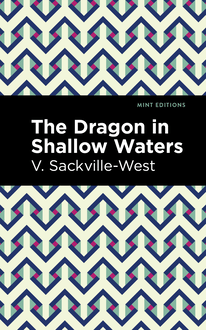-
 Univers
Univers
-
 Ebooks
Ebooks
-
 Livres audio
Livres audio
-
 Presse
Presse
-
 Podcasts
Podcasts
-
 BD
BD
-
 Documents
Documents
-
- Cours
- Révisions
- Ressources pédagogiques
- Sciences de l’éducation
- Manuels scolaires
- Langues
- Travaux de classe
- Annales de BEP
- Etudes supérieures
- Maternelle et primaire
- Fiches de lecture
- Orientation scolaire
- Méthodologie
- Corrigés de devoir
- Annales d’examens et concours
- Annales du bac
- Annales du brevet
- Rapports de stage
La lecture à portée de main

Vous pourrez modifier la taille du texte de cet ouvrage
Découvre YouScribe en t'inscrivant gratuitement
Je m'inscrisDécouvre YouScribe en t'inscrivant gratuitement
Je m'inscrisEn savoir plus
Vous pourrez modifier la taille du texte de cet ouvrage
En savoir plus

Description
Escal-Vigor (1899) is a novel by Georges Eekhoud. Recognized as a groundbreaking work of LGBTQ literature, Escal-Vigor was praised by some of Belgium’s leading critics upon publication, but also led to a trial in which Eekhoud was accused of obscenity. Acquitted, he managed to retain his reputation as a leading writer in Belgium and continued publishing novels and stories, often on homosexuality, until his death in 1927. “Henry, whose nature was passionate and philosophy audacious, told himself, not without reason, that through his affinities, he would feel himself at home amid these beautifully barbarous surroundings, where natural instincts reigned.” Having lived freely around Europe, Henry Kehlmark returns to his family’s ancestral home, ready to settle down in the role of Dykgrave, or Count. Soon, however, his cosmopolitan ways draw the attention of the local villagers, who mistrust Henry and question his intentions. When the Count strikes up a romantic relationship with the burgomaster’s son, an impressionable youth, he risks violent reprisal as a homosexual living in proximity to a traditional, insular people. For once in his life, however, Henry feels like he can be himself, living truthfully and without fear, able to separate himself from the pressures that dogged so many of his loved ones, now deceased. When word of their relationship gets out, however, Henry discovers the limits of provincial hospitality. With a beautifully designed cover and professionally typeset manuscript, this edition of Georges Eekhoud’s Escal-Vigor is a classic work of Belgian literature reimagined for modern readers.
Sujets
Informations
| Publié par | Mint Editions |
| Date de parution | 11 mai 2021 |
| Nombre de lectures | 0 |
| EAN13 | 9781513295565 |
| Langue | English |
| Poids de l'ouvrage | 1 Mo |
Informations légales : prix de location à la page 0,0450€. Cette information est donnée uniquement à titre indicatif conformément à la législation en vigueur.
Extrait
Escal-Vigor
Georges Eekhoud
Escal-Vigor was first published in 1899.
This edition published by Mint Editions 2021.
ISBN 9781513295411 | E-ISBN 9781513295565
Published by Mint Editions ®
minteditionbooks.com
Publishing Director: Jennifer Newens
Design & Production: Rachel Lopez Metzger
Project Manager: Micaela Clark
Typesetting: Westchester Publishing Services
C ONTENTS P ART THE F IRST . T HE D YKGRAVE ’ S R ETURN I II III IV V VI VII VIII P ART THE S ECOND . T HE S ACRIFICES OF B LANDINE I II III IV V VI VII VIII P ART THE T HIRD . T HE F AIR OF S T . O LFGAR I II III IV V
PART THE FIRST
THE DYKGRAVE’S RETURN
I
On the first of June, Henry de Kehlmark, the young “Dykgrave” or Count of the Dike, the lord of the castle Escal-Vigor, entertained a numerous company, as a sort of Joyous Entry, to celebrate his home-coming to the cradle of his forefathers, at Smaragdis, the largest and richest island in one of those enchanting and heroic northern seas, the coasts of which the bays and fiords hollow out and cut up capriciously into multiform archipelagoes and deltas.
Smaragdis, or the Emerald Isle, was a dependency of the half-German, half-Celtic kingdom of Kerlingalande. At the very beginning of commercial enterprise in the west, a colony of Hanseatic merchants settled there. The Kehlmarks claimed descent from the Danish sea-kings, or Vikings. Bankers, who had in them a dash of pirates’ blood, men both of knowledge and action, they followed Frederick Barbarossa in his Italian expeditions, and distinguished themselves by an inalterable devotion, the fidelity of thane to king, to the House of Hohenstaufen.
A Kehlmark had even been the favourite of Frederick II, the Sultan of Luceria, that voluptuous emperor, the most artistic of the romantic house of Swabia, who, in that brilliant southern land, lived a life energised by the deep and virile aspirations of the north. This Kehlmark perished at Beneventum with Manfred, the son of his illustrious friend.
At the date of our story, a large panel in the billiard room of Escal-Vigor still represented Conradin, the last of the Hohenstaufens, in the act of embracing Frederick of Baden before mounting with him on to the scaffold.
In the Fifteenth century, there flourished at Antwerp a Kehlmark, money-lender to kings, like the Fuggers and the Salviati, and he figured among those haughty Hanseatic merchants, whose custom it was to wend them to the Cathedral, or to the Exchange, preceded by fife and violin players.
An historic and even legendary abode, suggesting at once a German castle and an Italian palace, the castle of Escal-Vigor is situated at the western extremity of the island, at the intersection of two very lofty dikes, from whence it commands a view of the whole country.
From time immemorial the Kehlmarks had been considered as the masters and protectors of Smaragdis. The duty of guarding and keeping in repair the monumental dikes had been their’s for centuries. An ancestor of Henry was credited with the erection of those enormous ramparts, which had for ever preserved the country from those inundations and sometimes total submersions, that had overwhelmed several of the sister-isles.
Once only, about the year 1400, on a wild, tempestuous night, the sea had succeeded in breaking through a part of this chain of artificial hills, and had rolled its cataclysmal waves to the very heart of the island; when, so the tradition runs, the castle of Escal-Vigor proved sufficiently spacious and well-provisioned to serve as refuge and storehouse for the entire population.
The Dykgrave sheltered his people as long as the waters covered the country, and when the flood had abated he not only repaired the dike at his own expense, but also rebuilt the cottages of his vassals. In process of time these dikes, now almost five centuries old, had assumed the appearance of natural hills. On the summit were planted thick curtains of trees, somewhat bent by the west wind. At the highest point the two ranges of hills joined together to form a sort of plateau or promontory, that jutted like a horse-spur, or ship’s prow, sheer into the sea, and at the extreme end of this cape the castle stood out like a sentinel. The perpendicular dike presented to the ocean a face of granite wall and recalled those majestic rocks to be found along the Rhine, and out of which the castle crowning the summit looks as if it had been carved.
At high tide, the waves came breaking themselves in baffled rage at the foot of the buttress thrown up to check their fury. On the land side the two dikes sloped gently away, and, as they separated, their branches formed a small valley, which gradually grew larger, enclosing a magnificent park, with forests, pond and pastures. The trees, that were never pruned, spread out their wild foliage like immense fans, ever quivering in the wind like the sound of Aeolian harps. Herds of wild deer passed in their flight, like yellow flashes of lightning, amid the dense vegetation; while cows browsed on that moist and succulent herb, of an almost fluid green tint, to which the island owes its name of Emerald.
Notwithstanding the popularity of the Kehlmarks in the district, the castle had for the last twenty years remained uninhabited. The mutual affection of the young and handsome parents of the present Count had been so intense that the one could not survive the other. Henry was born there some months before their death. His paternal grandmother, who took charge of him, refused ever to set foot again in the country, to the ravages of whose inclement climate she attributed the premature death of her children. Henry, accordingly, was brought up on the continent, in the capital of the kingdom of Kerlingalande; and afterwards by the advice of physicians, he was sent to study at an international boarding-school in Switzerland.
There, at Bodemberg Castle where he passed his youth, he long wore the look of a fair, rather delicate adolescent, cursed with a tendency to anaemia and consumption; he had a reflective, somewhat intense expression of countenance, a broad, roundish forehead, cheeks the colour of a rose on the fade, whilst a precocious fire burnt in a pair of large, dark-blue coloured eyes, akin to the violet of amethyst, or the purple of the clouds and waves at sunset. His head, somewhat too massive, seemed with its weight to crush his sloping shoulders; his limbs were feeble, and his chest devoid of firmness. The weakly constitution of the little Dykgrave would have exposed him to the rough horseplay of his fellow-pupils had he not escaped this by the prestige of his intelligence, a prestige that had its effect even on the professors. All respected his need of solitude and reverie, his propensity to avoid the customary amusements, his liking to walk alone in the depths of the park, with no companion save a favourite author, or, more frequently, contenting himself with the society of his own thoughts. His ill-health still further increased his susceptibility. Headaches and intermittent fevers kept him often a-bed, isolating him for several days at a stretch.
Once, just after he had attained his fifteenth year, he was almost drowned, in an excursion on the water, a school-fellow with him having upset the boat. For several weeks he lay between life and death. Then, by a strange caprice of nature, it fell out that the very accident which had almost carried him off, brought about a salutary crisis, and produced that reaction so long desired by his grandmother, who looked upon him as her last hope and stay on earth. In agreement with the young Count’s guardians, she had selected this distant school, because it Was at once a model college and a fine health residence, in the most salubrious part of Switzerland. Before being converted into a cosmopolitan academy—it was intended for young patricians of both hemispheres—Bodemberg-Schloss had been a fashionable bathing establishment, the resort of the most elegant invalids of Switzerland and Germany. Henry’s grandmother had therefore naturally counted upon the healthy climate of the Aar valley, and the hygienic advantages of this educational establishment, more closely to bind to life and possibly to effect the complete regeneration of this the sole descendant of an illustrious race. For was not this idolised grandson of hers the only offspring left by her departed children, whom excess of love had early slain?
Kehlmark not only recovered his health, but found himself in possession of quite a new constitution. Not only did a rapid convalescence restore to him his former strength but, to his surprise, he saw himself growing taller, walking with a more elastic step, getting a bigger chest and harder muscles and gaining in flesh and fulness of blood. With this rejuvenescence of the body there came to Kehlmark a frankness and ingenuousness of the soul, of the warmth and tenderness of which, his over-studious and reflective mind had until then been wholly unaware.
Although he had formerly looked with contempt upon athletic exercises, he now applied himself to vigorous training, and in the end came to be quite an athlete. Far from shrinking, as before, from the risk of violent exertion, he distinguished himself by his boldness and enthusiasm. He, who in order to save himself the fatigue of a climb in the Jura, had often hidden away in the subterraneous passages, amongst the heating apparatus of the ancient bathing establishment, was now conspicuous among the most indefatigable of mountain climbers.
At the same time he remained a reader and a student, being at once a great amateur of deeds of physical prowess and of sporting games of skill, recalling in this respect the accomplished men and harmonious livers of the Renaissance.
On the death of his grandmother whom he adored, he had come back and taken up residence in his native country, a filial affection for which had clung to him from boyhood, and
Attention
En entrant sur cette page, vous certifiez :
- 1. avoir atteint l'âge légal de majorité de votre pays de résidence.
- 2. avoir pris connaissance du caractère érotique de ce document.
- 3. vous engager à ne pas diffuser le contenu de ce document.
- 4. consulter ce document à titre purement personnel en n'impliquant aucune société ou organisme d'État.
- 5. vous engager à mettre en oeuvre tous les moyens existants à ce jour pour empêcher n'importe quel mineur d'accéder à ce document.
- 6. déclarer n'être choqué(e) par aucun type de sexualité.
YouScribe ne pourra pas être tenu responsable en cas de non-respect des points précédemment énumérés. Bonne lecture !
-
 Univers
Univers
-
 Ebooks
Ebooks
-
 Livres audio
Livres audio
-
 Presse
Presse
-
 Podcasts
Podcasts
-
 BD
BD
-
 Documents
Documents
-
Jeunesse
-
Littérature
-
Ressources professionnelles
-
Santé et bien-être
-
Savoirs
-
Education
-
Loisirs et hobbies
-
Art, musique et cinéma
-
Actualité et débat de société
-
Jeunesse
-
Littérature
-
Ressources professionnelles
-
Santé et bien-être
-
Savoirs
-
Education
-
Loisirs et hobbies
-
Art, musique et cinéma
-
Actualité et débat de société
-
Actualités
-
Lifestyle
-
Presse jeunesse
-
Presse professionnelle
-
Pratique
-
Presse sportive
-
Presse internationale
-
Culture & Médias
-
Action et Aventures
-
Science-fiction et Fantasy
-
Société
-
Jeunesse
-
Littérature
-
Ressources professionnelles
-
Santé et bien-être
-
Savoirs
-
Education
-
Loisirs et hobbies
-
Art, musique et cinéma
-
Actualité et débat de société
- Cours
- Révisions
- Ressources pédagogiques
- Sciences de l’éducation
- Manuels scolaires
- Langues
- Travaux de classe
- Annales de BEP
- Etudes supérieures
- Maternelle et primaire
- Fiches de lecture
- Orientation scolaire
- Méthodologie
- Corrigés de devoir
- Annales d’examens et concours
- Annales du bac
- Annales du brevet
- Rapports de stage
















